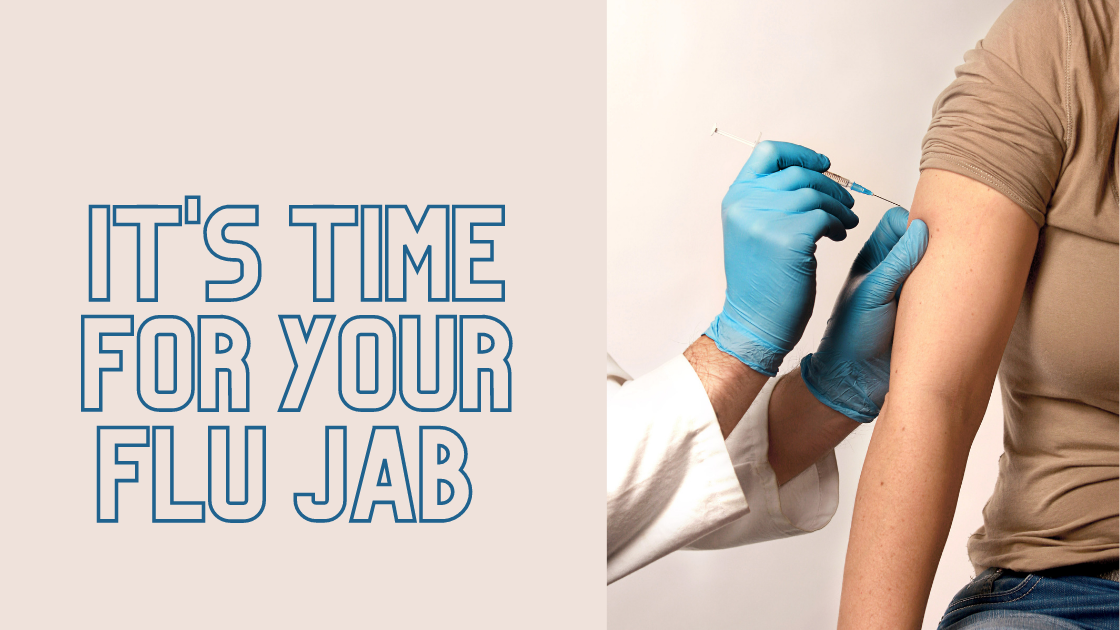For the first time people aged 50 and over have been included in the groups of people who are able to receive their flu vaccine free of charge on the NHS.
Why should I get the flu vaccine?
This year our focus has been taken up by Covid-19 which in fact makes it all the more important that as many people as possible receive the flu vaccine this year:
- Flu vaccination can stop you from being unwell with flu.
- To reduce the impact on health services. The flu vaccine prevents millions of illnesses and flu-related doctor’s visits each year.
- Flu vaccination can reduce the risk of flu-associated hospitalization for children, working age adults, and older adults.
- The flu vaccine reduces the severity of the illness in people who get vaccinated but still go on to be unwell with flu.
- The flu vaccine is a preventative measure to protect people with chronic health conditions.
- Getting vaccinated yourself may also protect people around you, including those who are more vulnerable to serious flu illness, like babies and young children, older people, and people with certain chronic health conditions.
- The flu vaccine is also important to protect pregnant women and young children.
How effective is the flu vaccine?
The flu vaccine gives the best protection against flu.
Flu vaccines help protect against the main types of flu viruses, although there's still a chance you might get flu. However, if you do get flu after vaccination, it's likely to be milder and not last as long.
It can take 10 to 14 days for the flu vaccine to work so it’s important to book in for your vaccination as soon as possible.
Does the flu vaccine give you flu?
None of the flu vaccines contain live viruses so they cannot cause flu.
If you are unwell after vaccination, you may have something else. Or you may have caught flu before your vaccination had worked.
Are there any side effects?
Flu vaccines are very safe. All adult flu vaccines are given by injection into the muscle of the upper arm.
Most side effects are mild and only last for a day or so, such as:
- slightly raised temperature
- muscle aches
- sore arm where the needle went in – this is more likely to happen with the vaccine for people aged 65 and over
Try these tips to help reduce the discomfort:
- continue to move your arm regularly
- take a painkiller, such as paracetamol or ibuprofen – some people, including those who are pregnant, should not take ibuprofen unless a doctor recommends it.
Allergic reactions to the flu vaccine
It's very rare for anyone to have a serious allergic reaction (anaphylaxis)to the flu vaccine. If this does happen, it usually happens within minutes.
The person who vaccinates you will be trained to deal with allergic reactions and treat them immediately.
(Source: https://www.nhs.uk/conditions/vaccinations/flu-influenza-vaccine)














